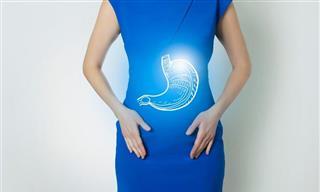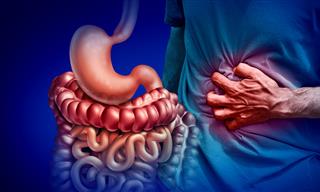Acid reflux, also known as gastroesophageal reflux disease (GERD), is a common digestive issue that affects millions of people worldwide. It can be a persistent and unpleasant condition that disrupts daily life. Characterized by the regurgitation of stomach acid into the esophagus, it often leads to heartburn, chest pain, and a sour taste in the mouth.
While antacids and proton pump inhibitors are common choices for acid reflux management, the broader approach involves implementing dietary and lifestyle adjustments. Additionally, adding various vitamins and supplements into the regimen could relieve symptoms.

From soothing irritated esophageal tissues to bolstering the digestive process, these nutritional aids offer a multifaceted approach to easing acid reflux symptoms. Here are five vitamins and supplements that may be useful in the treatment of acid reflux.
Related: These 6 Signs Will Determine Whether You Have Acid Reflux
1. Betaine hydrochloride (HCL)
Betaine hydrochloride (HCl) is a substance that raises stomach acid. Low stomach acid levels can hinder digestion and nutrient absorption while also causing adverse symptoms such as heartburn, stomach pain, and acid reflux.
If heartburn or indigestion is caused by inadequate gastric hydrochloric acid (HCL) secretion, Betaine hydrochloride could offer relief. With age, the ability to produce gastric acid diminishes, and studies show that over 50% of those aged 60 and above have low stomach HCL output. This deficiency often leads to post-meal gas and bloating.
Thankfully, incorporating HCL as a dietary supplement can remedy the body's potential production insufficiency.
Adults should take one or two 500 mg capsules with meals up to three times per day for HCL replacement therapy. To digest protein, the product should also contain the enzyme pepsin or a fungal protease.
2. B Vitamins

Research has shown that B vitamins like folate, riboflavin, and vitamin B6 may help in managing acid reflux. A study found a compelling association between higher consumption of these B vitamins and a reduced likelihood of experiencing reflux esophagitis—a condition that arises from inflammation in the esophagus often induced by acid reflux.
Furthermore, higher levels of folate and vitamin B6 intake have been correlated with a decreased risk of esophageal cancer and Barrett's esophagus, both of which can manifest as complications resulting from prolonged GERD.
In another comparative study, the efficacy of a supplement that combined vitamin B6, folic acid, vitamin B12, L-tryptophan, melatonin, betaine, and methionine was assessed against an over-the-counter heartburn treatment. Impressively, the supplement proved vastly superior, granting full relief from heartburn symptoms to 100% of the participants after a 40-day treatment period, while the over-the-counter alternative achieved a modest 65% success rate.
Please note that B vitamins were merely a part of this supplement. More extensive studies are necessary to isolate the effects of B vitamins on acid reflux symptoms when taken independently.
3. Vitamins A and C

As per a 2012 study in Collegium Arthropologicum, a diet rich in antioxidants like vitamins A and C could play a preventive role in GERD. These antioxidants serve as defenders against free radicals, harmful substances that can cause cellular damage, infections, and ailments that may aggravate acid reflux symptoms.
Research conducted at Osijek University suggests that consuming a multivitamin containing vitamins A and C could benefit digestive health and alleviate related symptoms. These vitamins can be obtained from dietary sources and in supplement form. Vitamin A-rich foods like liver, eggs, sweet potatoes, squash, carrots, and spinach, along with vitamin C-rich sources like bell peppers, broccoli, oranges, limes, lemons, and kiwis, can help meet your nutritional needs.
4. Vitamin E

With its antioxidant properties, vitamin E may protect against GERD development, while also promoting a healthy immune system and heart. However, due to related health issues, such as the risk of stroke, vitamin E supplementation needs to be used with caution. Consultation with a healthcare professional is recommended before considering such supplements. Alternatively, you can obtain vitamin E naturally from nutrient-rich foods such as spinach, olive oil, avocado, nuts, and nut butter.
Related: 11 Foods to Alleviate Heartburn and Acid Reflux
5. Iberogast
Iberogast is an over-the-counter supplement commonly taken to treat acid reflux and irritable bowel syndrome (IBS). The supplement is made from herbal extracts, such as peppermint, licorice root, and milk thistle fruit.
According to an in-depth review of 12 studies, Iberogast is generally well-received and displays promising efficacy in reducing indigestion symptoms more effectively compared to a placebo. A separate study involving 272 participants revealed that Iberogast notably improved digestive discomforts, including upper stomach pain, heartburn, and reduced appetite, within just 15 minutes of administration.
 Go to BabaMail
Go to BabaMail




























